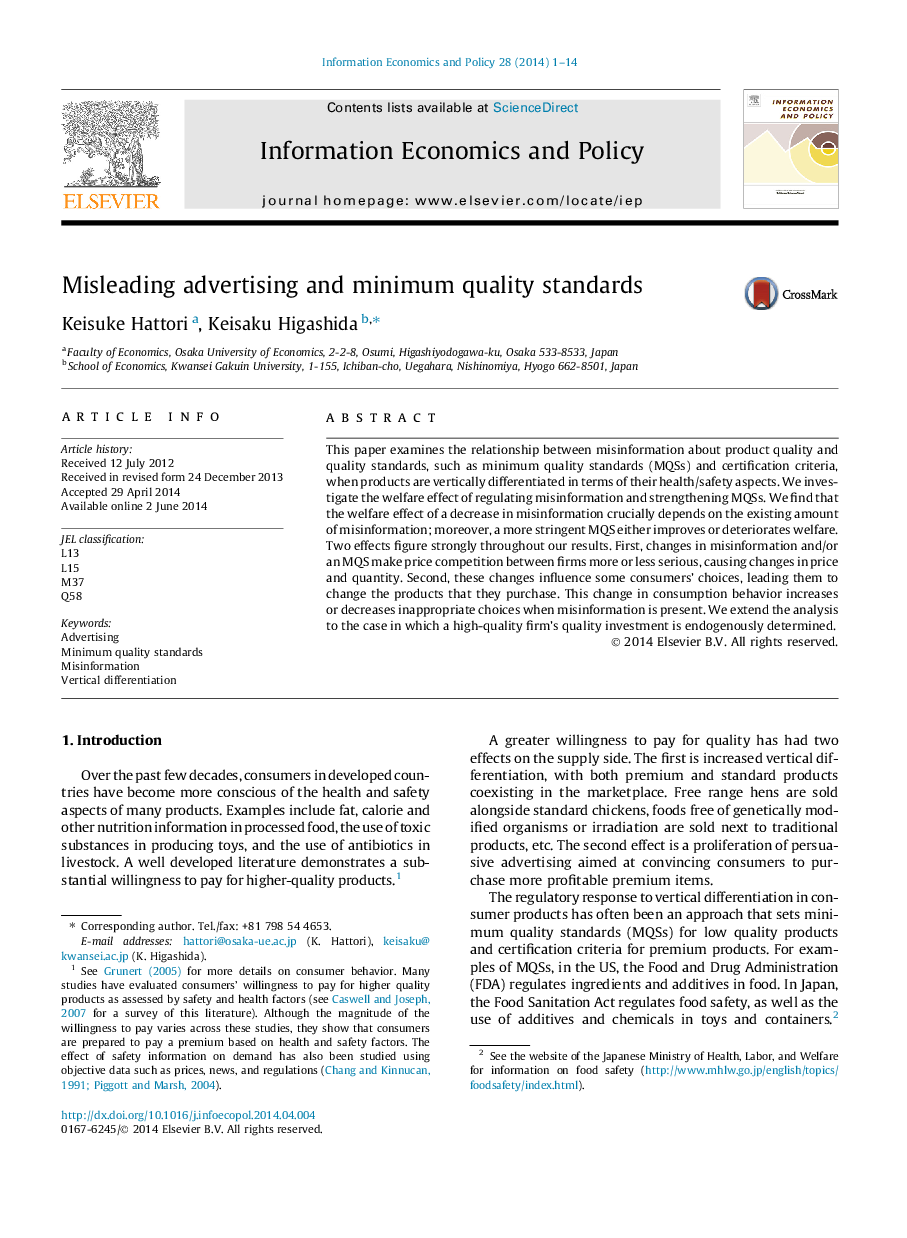| Article ID | Journal | Published Year | Pages | File Type |
|---|---|---|---|---|
| 5075772 | Information Economics and Policy | 2014 | 14 Pages |
â¢This paper examines the relationship between misinformation and quality standards.â¢Products are vertically differentiated in their health/safety aspects.â¢The effect of regulating misinformation depends on the amount S of misinformation.â¢A stricter minimum quality standard can improve or damage welfare.â¢Regulating misinformation on high-quality products may deteriorate the true quality.
This paper examines the relationship between misinformation about product quality and quality standards, such as minimum quality standards (MQSs) and certification criteria, when products are vertically differentiated in terms of their health/safety aspects. We investigate the welfare effect of regulating misinformation and strengthening MQSs. We find that the welfare effect of a decrease in misinformation crucially depends on the existing amount of misinformation; moreover, a more stringent MQS either improves or deteriorates welfare. Two effects figure strongly throughout our results. First, changes in misinformation and/or an MQS make price competition between firms more or less serious, causing changes in price and quantity. Second, these changes influence some consumers' choices, leading them to change the products that they purchase. This change in consumption behavior increases or decreases inappropriate choices when misinformation is present. We extend the analysis to the case in which a high-quality firm's quality investment is endogenously determined.
